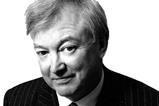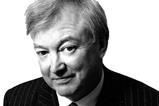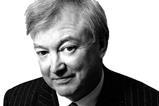What happened in the Liverpool case is that a senior lawyer (Goldberg) was accused of professional negligence when advising about tax law, so Liverpool sued him. The defendant lawyer obtained the services of a QC to give expert evidence on what standard of advice should have been given. Snag was, this expert had been a bosom pal of Goldberg for the past 28 years. Liverpool's lawyers pointed to the rules about all experts needing to be unbiased. The court agreed with this complaint. It decided that it would disregard the expert's evidence because "of his close relationship with the defendant". The judge fastened on to a remark in the expert's report, which said: "I do not believe that this relationship will affect my evidence. I certainly accept that it should not do so, but it is right that I should say my personal sympathies are engaged to a greater degree than would probably be normal with an expert witness." The judge said, more or less, "that's that" and out went the expert.
Now then, if you as an arbitrator have that judgment shoved under your nose, sniff carefully. The judge who ousted the evidence, dated 6 July 2001, was Mr Justice Evans-Lombe. But ask to see the judgment three months before by Mr Justice Neuberger. He too gave a great deal of thought to precisely the same issue in the same case. And, if I may say so, appeared to reach the opposite conclusion to his fellow judge. He would have kept the expert in.
The plain fact is, this notion of bias has now become such a focus of attention, that we are in danger of becoming obsessed
Why was the matter heard twice? The reason is that the objecting party ran the objection in March before trial. It wanted to know if this expert was in or out. Mr Justice Neuberger thought that the fact that an expert had a close personal or professional relationship did not mean, as a matter of law or even as a matter of fact, that the expert was incapable of satisfying the tests of independence required of experts. He said: "The contention that he is, as a matter of fact, not independent confuses lack of independence with features which might give rise to lack of independence." He went on to say that to assume "that [this expert] is inevitably incapable of being independent is not right". He finished: "Any judge worth his salt should be able to assess whether this expert is independent or whether, despite his best efforts to the contrary, he is not, by hearing him give his evidence and hearing him deal with such points as are thought appropriate to put to him on this issue." So, he would leave it all to the trial judges to decide.
Postscript
Tony Bingham is a barrister and arbitrator specialising in construction. You can write to him at 3 Paper Buildings, Temple, London EC4 7EY, or email him on info@tonybingham.co.uk.




























